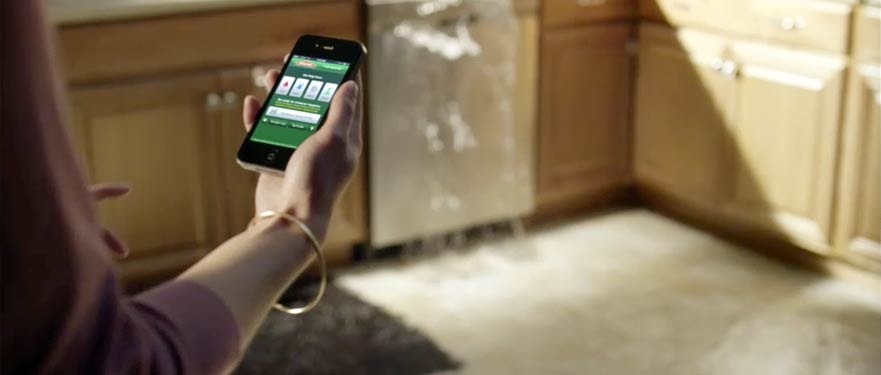
Water Damage Emergency Tips
What you can do until help arrives
Water Tips | Fire Tips | Biohazard Tips | Mold Tips
After you discover water damage the first thing you need to do is shut off the water if you can. If the water is coming from a broken pipe, supply line, refrigerator ice maker, or toilet overflow there are several ways to stop the water. If you are on city water, find the shutoff valve at the water meter and turn it off. In the event that there is no shutoff valve, call the city Department of Water or Public Works and ask them to send a crew out to stop the water at the street. They should have workers on call even after hours and weekends.
If you have a well, turn off the breaker supplying power to the well pump. (Be careful not to touch the breaker or any electrical switches if they are wet or if you are standing in water) Another way to stop the water is to turn the water valve off at the well-troll or pressure tank. Whether you have a well or are on city water sometimes you can find a valve near the break that you can turn off allowing the rest of the home or business to have water. Make sure you turn the water heater off also. If the water is drained from the water heater, the heating element can burn up due to not having water needed to cool the element.
Have A Water Damage Emergency? Call (231) 723-4872
What To Do After Flooding
- Remove excess water by mopping and blotting.
- Wipe excess water from wood furniture after removal of lamps and tabletop items.
- Remove and prop wet upholstery and cushions.
- Place aluminum foil or wood blocks between furniture legs and wet carpeting.
- Turn air conditioning on for maximum drying in summer.
- Remove colored rugs from wet carpeting.
- Remove art objects to a safe, dry place.
- Gather loose items from floors.
What NOT To Do After Flooding
- Don't leave wet fabrics in place. Hang furs and leather goods.
- Don't leave books, magazines or other colored items on wet carpet or floors.
- Don't use your household vacuum to remove water.
- Don't use television or other household appliances.
- Don't turn on ceiling fixtures if ceiling is wet, and keep out of rooms where ceilings are sagging.






 24/7 Emergency Service
24/7 Emergency Service


